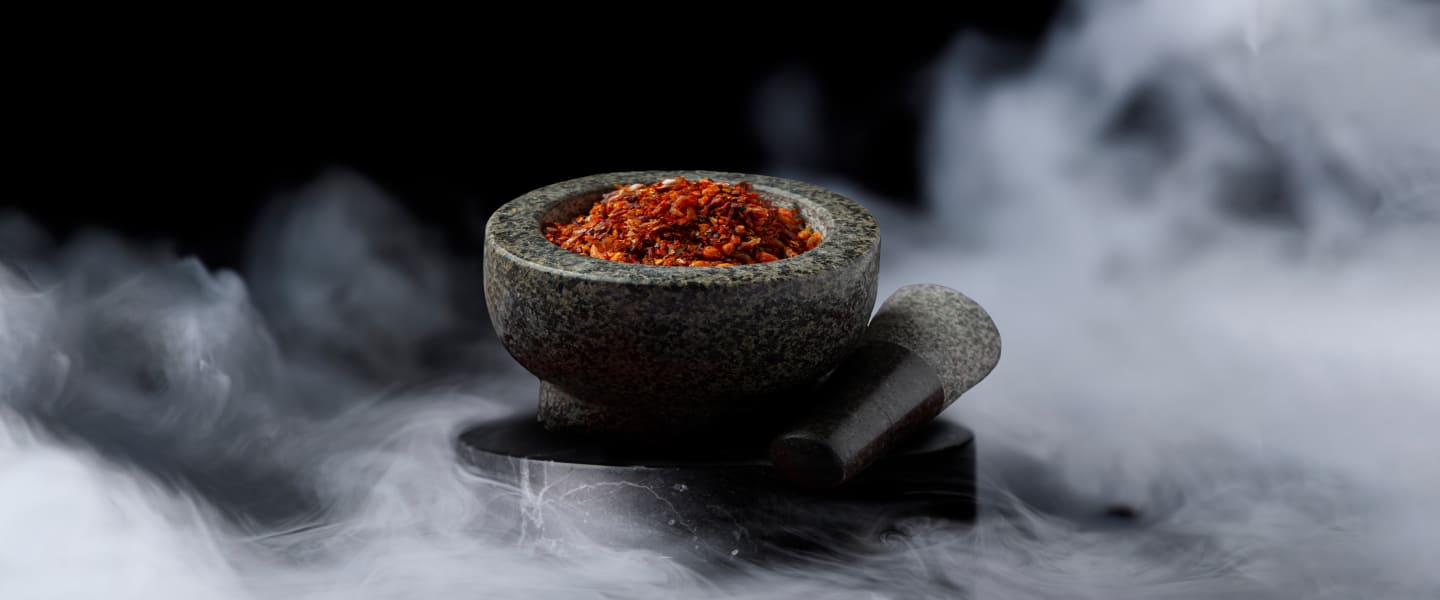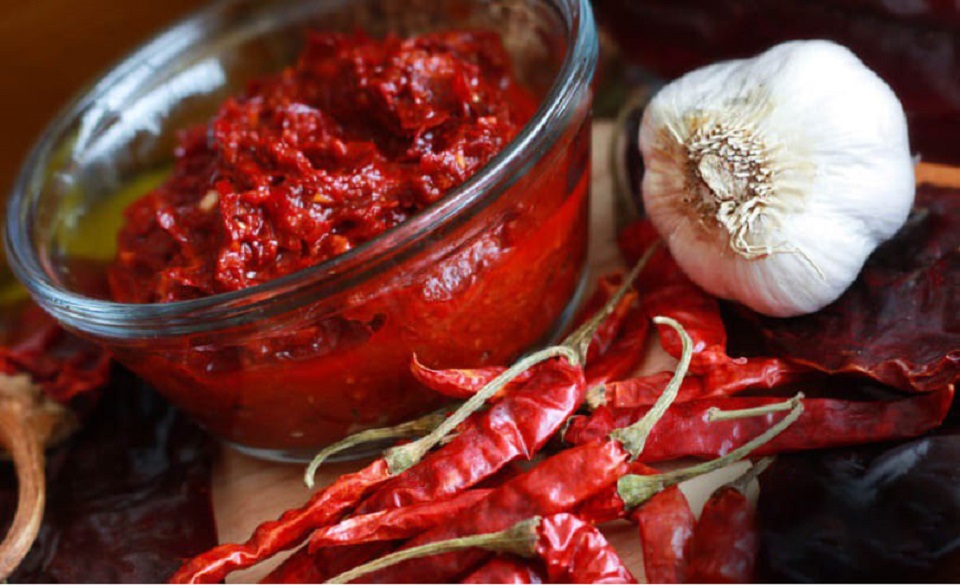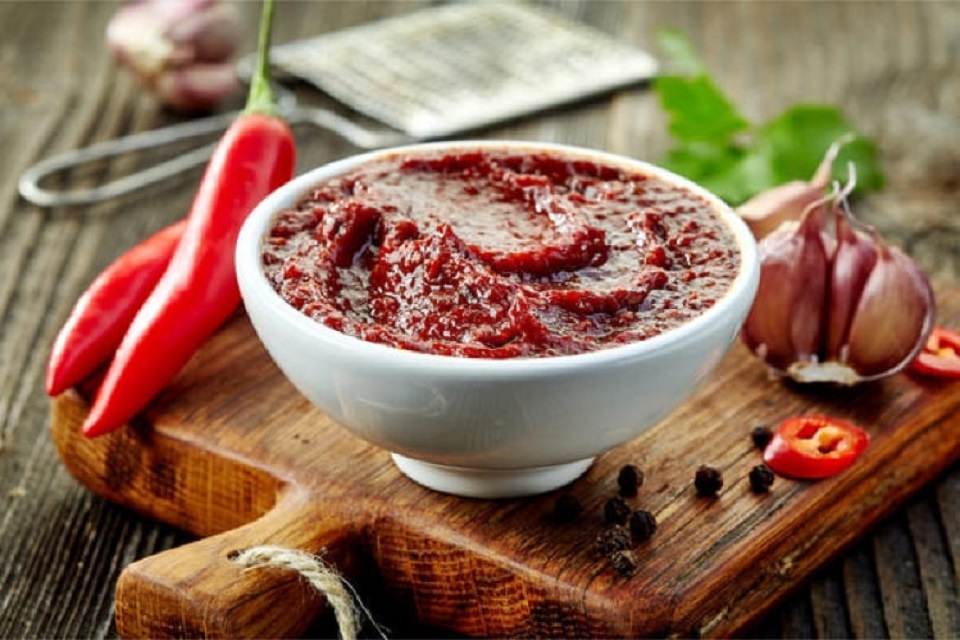


Harissa is the main condiment of the Tunisian culinary tradition. It’s a paste which tastes like hot North African summer, and winter is the best time of the year to talk about harissa since it helps you to get warm and protects you against colds and flu viruses. Moreover, UNESCO has recently added Tunisia’s spicy national condiment to the List of Intangible Cultural Heritage.
So, harissa has officially been rewarded and recognized worldwide. It’s great news which we’re happy to spread among all the people who are interested in Tunisian culture and traditions.
The 17th session of the Intergovernmental Committee for the Safeguarding of the Intangible Cultural Heritage was held in Morocco from November 28 to December 3. The Committee members from 60 countries of the world made their proposals and after the examinations several dozens of items were included in the UNESCO Heritage list.
Among new inscriptions 2022 there are manual bell ringing in Spain, traditional performing art in Kazakhstan called Orteke, Turkmen-style needlework art in Turkmenistan, Al Talli, traditional embroidery skills in the United Arab Emirates and other fascinating elements.
Ms. Audrey Azoulay, UNESCO Director-General and a French civil servant and politician of Moroccan origin, thanked the members of the Committee for the quality of their debates and noted that “This living heritage plays an essential role in bringing people together and making peace grow in the minds of men.” In this regard, the centuries-old tradition of eating together is one of the best ways to unite nations and develop mutual understanding between representatives of different cultures.

In this case harissa is beyond comparison. While trying this dish, you can literally taste Tunisia: to see the ages of the country’s rich history in front of your eyes, feel the hot Sahara wind and the Mediterranean breeze on your cheeks.
A paste made with sun-dried hot peppers, garlic, freshly prepared spices and olive oil, harissa is definitely an essential dish on the menu of travelers who want to learn more about Tunisia.
There harissa is used as a condiment, an ingredient, and even a dish in its own right, you probably won’t be able to find it only in sweets. Tunisians serve harissa for almost every meal, they have it for breakfast, lunch and dinner, on special occasions and on weekdays. It’s a very versatile ingredient. Harissa works perfectly in soups, couscous, meat, fish, pasta, rice and sandwiches. Such popularity is explained by two factors: firstly, harissa brings spiciness and a richer taste to the food; secondly, it has some health benefits helping Tunisians to get warm and boost the immune system in winter and protect themselves from infections in summer.
Moreover, the annual Harissa Festival is held in October in the Tunisian resort city of Nabeul. In the old Arab medina of the city there’s an exhibition, show cooking, tasting and harissa for sale. The best cooks specializing in traditional Tunisian cuisine cook harissa in millions of different ways.
During the festival visitors can taste both traditional and unusual author’s varieties of the famous Tunisian condiment, try hot peppers brought from different regions of the country and, of course, buy an authentic edible “souvenir” which can be a good gift from a journey to North Africa.

Harissa is popular in Israel and Europe but it’s mostly used as a condiment in the Maghreb region, especially in Tunisia. Different culinary traditions feature different recipes of harissa preparation: some people add tomatoes, while others prefer lemon juice and rose petals. The Tunisian recipe is the spiciest. On the Scoville scale which is used for measuring the pungency of chili peppers, its heat is estimated at 4,500 – 5,000 Scoville heat units (SHU).
To make classic Tunisian harissa, you need to preheat the oven to 180 °C. Put thoroughly washed and dried red hot peppers (1 kg) on a baking sheet greased with vegetable oil. Drizzle 2 tbsp of vegetable oil over them, cover with aluminum foil and put in the oven.
Bake the peppers for 40 minutes, then remove them from the oven and let them cool to room temperature. Remove stalks, seeds and skin the peppers. Grind them in a blender to the consistency of smooth puree.
Next, peel and chop garlic very finely (1 head). Add cumin seeds (50 g) and coarse salt, preferably sea salt (1 tbsp). Mix everything thoroughly, put ready-made harissa in a clean jar, pour olive oil. Done, enjoy it!
This paste is made in two ways: machine and manual ones. If you choose to cook it manually, don’t forget to wear gloves when working with pepper. There’s one more nuance: peppers should be skinned if you’re going to grind them in a blender but if you want to cut them with a knife, there’s no need to remove the skin.
No matter how well-known and popular throughout the country it is, harissa is not the only dish that distinguishes Tunisian cuisine. There travelers can taste incredible olive oil which can hardly be found in an ordinary supermarket. Or they can try something really amazing such as local grey wines that are produced in the country as well as familiar red, white and rose wines.
Finally, when you’re in Tunisia, to try couscous is a must! The Berber dish was also inscribed on the UNESCO List of the Intangible Cultural Heritage of Humanity in 2020. The application for the status was made by Tunisia and its neighboring countries Algeria, Morocco and Mauritania. It’s a vivid example of international cultural cooperation that was encouraged and rewarded by the UNESCO Committee in order to bring peoples and cultures closer together.
In every city of Tunisia they cook couscous in a different way, for example, with fish in Sfax or with lamb. Anyway, whichever type of couscous you choose, don’t forget to add harissa in it before serving, so you’ll see that traveling along the Mediterranean coast of North Africa isn’t just interesting but truly delicious!